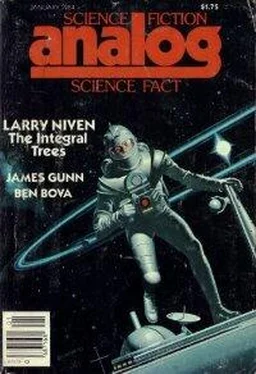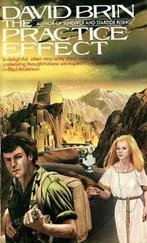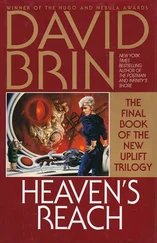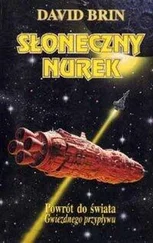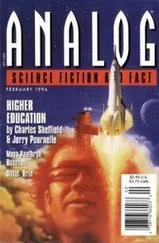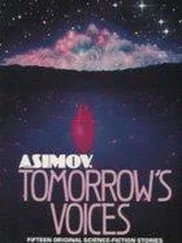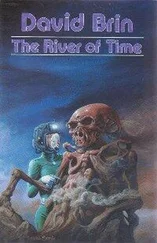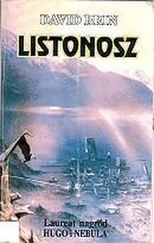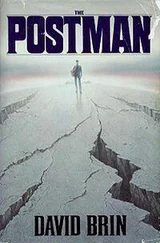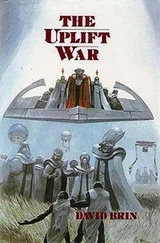David Brin - The Crystal Spheres
Здесь есть возможность читать онлайн «David Brin - The Crystal Spheres» весь текст электронной книги совершенно бесплатно (целиком полную версию без сокращений). В некоторых случаях можно слушать аудио, скачать через торрент в формате fb2 и присутствует краткое содержание. Год выпуска: 1984, Издательство: Davis Publications, Inc., Жанр: Фантастика и фэнтези, на английском языке. Описание произведения, (предисловие) а так же отзывы посетителей доступны на портале библиотеки ЛибКат.
- Название:The Crystal Spheres
- Автор:
- Издательство:Davis Publications, Inc.
- Жанр:
- Год:1984
- ISBN:нет данных
- Рейтинг книги:4 / 5. Голосов: 1
-
Избранное:Добавить в избранное
- Отзывы:
-
Ваша оценка:
- 80
- 1
- 2
- 3
- 4
- 5
The Crystal Spheres: краткое содержание, описание и аннотация
Предлагаем к чтению аннотацию, описание, краткое содержание или предисловие (зависит от того, что написал сам автор книги «The Crystal Spheres»). Если вы не нашли необходимую информацию о книге — напишите в комментариях, мы постараемся отыскать её.
Won Hugo Award for Best Short Story in 1985.
The Crystal Spheres — читать онлайн бесплатно полную книгу (весь текст) целиком
Ниже представлен текст книги, разбитый по страницам. Система сохранения места последней прочитанной страницы, позволяет с удобством читать онлайн бесплатно книгу «The Crystal Spheres», без необходимости каждый раз заново искать на чём Вы остановились. Поставьте закладку, и сможете в любой момент перейти на страницу, на которой закончили чтение.
Интервал:
Закладка:
In the excited, happy babble that followed, Moishe Bok, our captain, had to shout to be heard.
“All right! People! Look, it’s clear none of us are going to get any sleep soon. Lifesciencer Taiga, have you prepared a list of corpsicles to thaw, in case we have found a goodworld?”
Alice drew the list from her pocket. “Ready, Moishe. I have biologists, technicians, planetologists, crystallographers… ”
“You’d also better awaken a few archaeologists and Contacters,” Yen added dryly.
We turned and saw that his hands were back in the holistank. His face bore a dreamy expression.
“It took our civilization three thousand years to herd our asteroids into optimum orbits for space colonies. But compared with this system, we’re amateurs. Every smallbody orbiting this star has been transformed. They march around like ancient soldiers on a drillfield. I have never even imagined engineering on this scale.”
Moishe’s gaze flickered to me. As executive officer, it would be my job to fight for the ship, if Pelenor found herself in trouble… and to destroy her if capture were inevitable.
Long ago we had reached one conclusion. If goodstars without crystalspheres were rare, and dreamt of by a frustrated mankind, the same might hold for some other star-traveling race. If some other people had managed to break out of its shell, and now wandered about, like us, in search of another open goodstar, what would such a race think, upon detecting our ship?
I know what we would think. We would think that the intruder had to come from somewhere… an open goodstar.
My job was to make sure nobody ever followed Pelenor back to Earth.
I nodded to my assistant, Yoko Murukami, who followed me to the armsglobe. We unfolded the firing panel and waited while Moishe ordered Pelenor piloted cautiously closer.
Yoko looked at the panel dubiously. She obviously doubted the efficacy of even a mega-terawatt laser against technology of the scale described by Yen.
I shrugged. We would find out soon. My duty was done the moment I flicked the arming switch and took hold of our deadman autodestruct. In the hours that passed, I watched the developments carefully, but could not help deepremembering.
4
Back in the days before starships—before Seeker broke Sol’s eggshell and precipitated the two-century CometWar —mankind had awakened to a quandary that caused the thinkers of those early days many sleepless nights.
As telescopes improved, as biologists began to understand, and even tailormake life, more and more people began to look up at the sky and ask, “Where the hell is everybody?”
The great lunar-based cameras tracked planets around nearby yellow suns. There were telltale traces of life even in those faint twenty-first-century spectra. Philosophers case nervous calculations to show that the galaxies must teem with living worlds.
And as they prepared our first starships, the deepthinkers began to wonder. If travel between the stars was as easy as it appeared to be, why hadn’t the fertile stars already been settled by somebody else?
After all, we were getting ready to head out and colonize. By even modest estimates of expansion rates, we seemed sure to fill the entire galaxy with human settlements within a few million years.
So why hadn’t this already happened ? Why was there no sign of traffic among the stars? Why had the predicted galactic radio network of communications never been detected?
Even more puzzling… why was there absolutely no evidence that Earth had ever been colonized in the past? We were by then quite certain that our world had never hosted visitors from other worlds.
For one thing, there was the history of the Precambrian to consider.
Before the age of reptiles, before fish or trilobites or even amoebae, there was, on Earth, a two-billion-year epoch in which the only lifeforms were crude single-celled organisms without nuclei—the prokaryotes—struggling slowly to invent the basic structure of life.
No alien colonists ever came to Earth during all that time. We knew that for certain, for if they had, the very garbage they buried would have changed the history of life on our planet. A single leaky latrine would have filled the oceans with superior lifeforms that would have overwhelmed our crude little ancestors.
Two billion years without being colonized… and then the silent emptiness of the radioways… the philosophers of the twenty-first century called it the Great Silence. They hoped the starships would find the answer.
Then the very first ship, Seeker , somehow smashed the crystal-sphere we hadn’t even known existed, and inadvertently explained the mystery for us.
During the ensuing CometWar, we had little time for philosophical musings. I was born into that battle, and spent my first hundred years in harsh screaming littleships, blasting and herding iceballs that, left alone, would have fallen upon and crushed our fragile worlds.
We might have let Earth fall then. After all, more than half of humanity at that time lived in space colonies, which could be protected more easily than any sittingduck planet.
That might have been logical. But mankind went a little crazy when Earthmother was threatened. Belters herded cities of millions into the paths of hurling iceballs, just to save a heavy world they had only known from books and a faint blue twinkle in the blackness. The psychists took a long time to understand why. At the time it seemed like some sort of divine madness.
Finally the war was won. The comets were tamed and we started looking outward again. New starships were built, better than before.
I had to wait for a berth on the twelfth ship, and the wait saved my life.
The first seven ships were lost. As they beamed back their jubilant reports, spiraling closer to the beautiful green worlds they had found, they plowed into unseen crystalspheres and were destroyed.
And, unlike Seeker , they did not accomplish anything by dying. The crystalspheres remained after the ships had been icecrushed into comets.
We had all had such hopes… though those who remembered Seeker had worried quietly. Humanity seemed about to breathe free, at last! We were going to spread our eggs to other baskets, and be safe for the first time. No more would we fear overpopulation, crowding, or stagnation.
And all at once the hopes were smashed—dashed against those unseen, deadly spheres.
It took centuries even to learn how to detect the deadzones! How , we asked. How could the universe be so perverse? Was it all some great practical joke? What were these monstrous barriers that defied all the physics we knew, and kept us away from the beautiful littleworlds we so desired?
For three centuries, humanity went a little crazy.
I missed the worst years of the greatdepression. I was with a group trying to study the sphere around Tau Ceti. By the time I got back, some degree of order had been restored.
But I returned to a solar system that had clearly lost a piece of its heart. It was a long time before I heard true laughter again, on Earth or on her smallbodies.
I too went to bed and pulled the covers over my head for a couple of hundred years.
5
The entire crew breathed a reliefsigh when Captain Bok ordered me to put the safeties back on. I finally let go of my deadman switch and got up. The tension seeped away into a chain of shivers, and Alice had to hold me until I could stand again on my own.
Moishe had ordered us off alert because the goodsun’s system was empty.
To be accurate, the system teemed with life, but none of it was intelligent.
Читать дальшеИнтервал:
Закладка:
Похожие книги на «The Crystal Spheres»
Представляем Вашему вниманию похожие книги на «The Crystal Spheres» списком для выбора. Мы отобрали схожую по названию и смыслу литературу в надежде предоставить читателям больше вариантов отыскать новые, интересные, ещё непрочитанные произведения.
Обсуждение, отзывы о книге «The Crystal Spheres» и просто собственные мнения читателей. Оставьте ваши комментарии, напишите, что Вы думаете о произведении, его смысле или главных героях. Укажите что конкретно понравилось, а что нет, и почему Вы так считаете.
